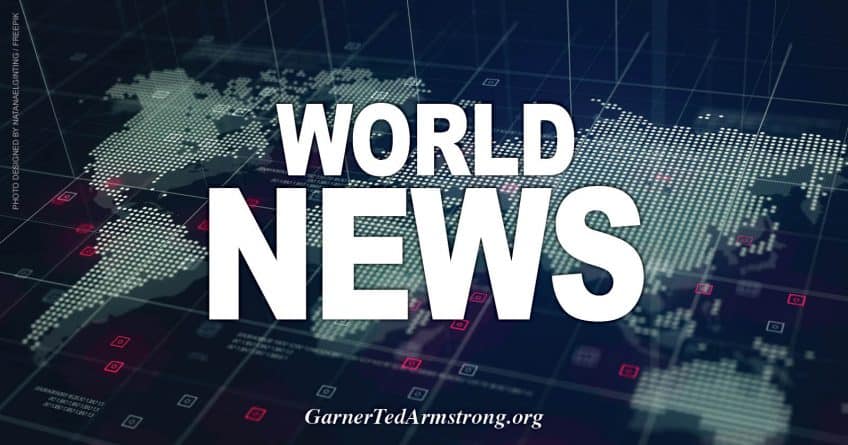1. COVID-19 continues to rage
For a second year the COVID-19 pandemic has raged, with more severe waves of infection causing more losses following the emergence of new variants of the SARS-CoV-2 virus: Delta and Omicron. At the end of 2021, the world has reported more than 280 million cases of COVID-19 and nearly 5.5 million deaths. New vaccines have enabled many countries to contain the pandemic, reopen their borders, and reboot their economy, but the appearance of new variants suggests the fight against the pandemic is far from over.
2. World economy shows signs of recovery
2021 global economic growth is estimated to be 5-6%, compared with a contraction of 4.4% in 2020. Rapid vaccination and huge economic stimulus packages in “economic locomotives” like the US, Europe and China, provided the driving force for the global recovery. But after sustaining damages of 3.3 trillion USD, tens of millions of jobs lost, and global supply chains disrupted, what the world economy will look like in 2022 still depends heavily on COVID-19 pandemic developments.
3. COP26 (United Nations Conference on Climate Change)
On November 13, 197 countries attending the United Nations Conference on Climate Change (COP26) ratified the Glasgow Climate Pact. 100 countries also pledged to end deforestation and cut methane emissions by 30% by 2030. The world’s two largest emitters, the US and China, issued a joint statement, pledging to cooperate in building a long-term strategy to combat climate change. The results of the Conference offered hope that the world can still prevent the worst effects of climate change.
4. US withdraws troops from Afghanistan after 20 years of war, Taliban returns to power
On August 30, the last US troops left Afghanistan, ending the longest war in US history. During 20 years of war, 3,500 American and allied troops and tens of thousands of Afghan soldiers and civilians were killed in Afghanistan. On August 15, the Taliban took control of the capital Kabul after having taken control of most of the rest of Afghanistan, making the country’s future uncertain and worrisome. The risk of Afghanistan exporting terrorism, conflict, and violence could jeopardize the security of the entire world.
5. US-China strategic competition grows fiercer, but not yet out of control
Since taking office as the 46th President of the United States on January 20, Joe Biden has worked hard to build a new coalition to deal with China, as the US-China strategic competition has become an all-out confrontation. The US has demanded that China make concessions on Chinese Taipei, the East Sea, the East China Sea, democracy, human rights, and other issues. Rather than making any concessions, China has redoubled its effort to overtake the US as the world’s strongest economy. Although they reached no compromise, both the US and China have signaled a readiness for dialogue to keep their confrontations from spiraling out of control.
6. AUKUS profoundly changes Indo-Pacific landscape
The Tripartite Security Agreement reached by Australia, the UK and the US (AUKUS) on September 15 marked a new step in the US’s pivot to the Indo-Pacific, and created a major change in the region’s strategic balance. The AUKUS mechanism tightened the relationship between the US, UK and Australia, while worsening the US-China relations, and causing rifts between the US and its European allies. With the EU and the US later announcing their separate Indo-Pacific strategies, the birth of AUKUS Alliance marks a gathering of forces and the Indo-Pacific’s growing geopolitical importance.
7. End of Merkel’s rule – a void and future expectations for Germany and Europe
Angela Merkel’s rule came to an end when Olaf Schozl was confirmed as Chancellor by the German Bundestag on December 8. During her 16 years in office, Chancellor Merkel led Germany and the EU through major crises, including the 2008 financial crisis, the 2015 migration crisis, the 2010 public debt crisis, and Brexit, made Germany a “European locomotive” and accelerated the unification of Europe. Merkel’s departure from politics raises concerns about a power vacuum in Germany and the EU, but also rekindles hopes for winds of change in the near future.
8. Political upheaval in Myanmar, Sudan, Guinea
On February 1, the National Alliance for Democracy underpinning the civilian government of Myanmar, was stripped of its power and power was transferred to the military. In Africa, Sudan was plunged into a political crisis after the military dissolved the Sudanese power-sharing government and declared a state of emergency on October 25. In 2021, Africa also witnessed coups in Mali and Guinea. These worrisome political developments reflected a trend of political and social instability in many countries.
9. Russian-Western relations on the brink of breakdown
Russia-Ukraine relations suddenly worsened with the two sides increasing military buildups near the border between Russia and Ukraine. Between problems in the Baltic Sea and Black Sea area and a migration crisis on the Poland-Belarus border, the risk of conflict between the West and Russia reached its highest level since the Cold War. On December 17, Russia published the draft of the eight-point treaty with the West aimed at easing tensions in Europe and defusing the Ukraine crisis. If a new agreement is not reached soon, Russia-Western relations could reach a dangerous tipping point.
10. First commercial space flight ushers in new era of space travel
On the evening of September 15, the Space Exploration Technologies Corporation (SpaceX) successfully launched the world’s first private spacecraft into Earth orbit. The event marked the ambitious start of a new space tourism industry. Following SpaceX, companies Virgin Galactic and Blue Origin also launched private flights carrying passengers into space.
Source: https://vovworld.vn/en-US/current-affairs/top-10-world-events-of-2021-1061358.vov
[Disclaimer]








